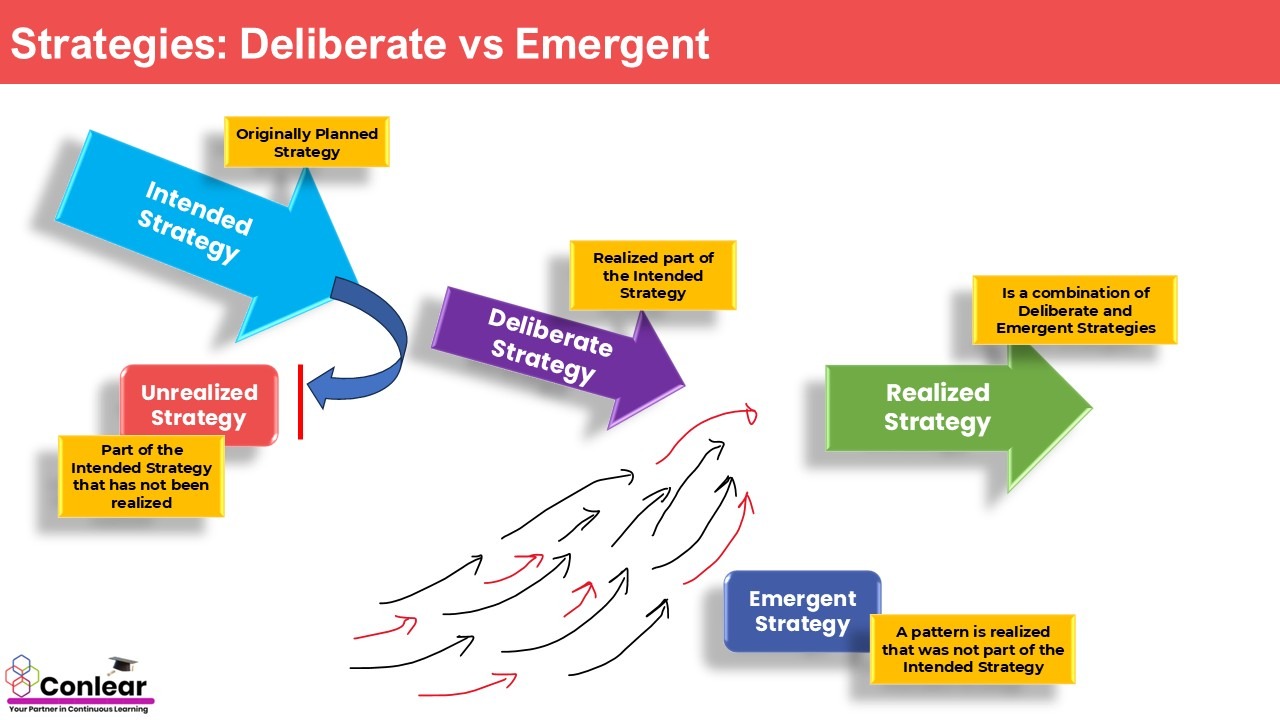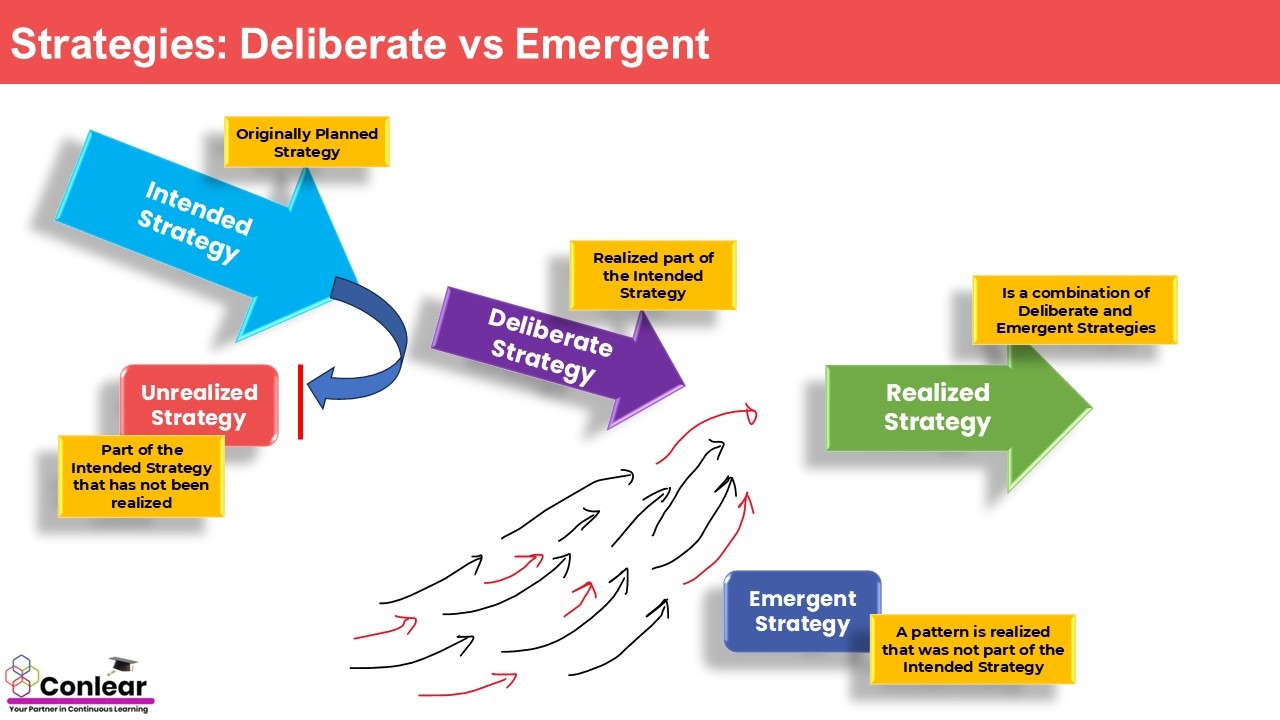There are no items in your cart
Add More
Add More
| Item Details | Price | ||
|---|---|---|---|
Strategic management involves adapting to a dynamic business environment rather than strictly following predetermined plans. Intended strategies offer guidance, deliberate strategies facilitate implementation, while emergent strategies enable flexibility. Organizations that achieve this equilibrium, such as Netflix, are poised for enduring success in a VUCA world.

In business and management, Strategy is often seen as a well charted plan leading directly to the realization of Organization's goals. However, the reality is quite different. Organizations operate in environments that are subject to dynamic changes, and this requires adaptability. Understanding these changes can help the organizations understand why some strategies do not deliver results, observe the emerging patterns and to make course corrections in the strategies that are working well.
Although, there are several examples, we shall be using the Netflix's strategies to comprehend the concept of Deliberate and Emergent Strategies.

Intended strategy refers to the original plan formulated by an organization’s leadership. It is based on analysis, forecasting, and long-term objectives. This strategy sets the direction before external influences and operational realities come into play.
For example, a company might set an intended strategy to enter a new market within five years, focusing on specific product lines and target audiences. However, whether this strategy succeeds depends on execution and external factors.
Let us take the example of Netflix. Netflix started off as a DVD rental company. It's intended strategy was to dominate through DVD-by-mail. It was a well though out plan aimed at outpacing the traditional video rental stores and replace it with a convenient delivery model.
The portion of the Intended strategy that has been successfully executed is known as the deliberate strategy. It stands for what an organization does without deviating too much from its initial plan.
For instance, if a retail chain plans a national expansion and successfully rolls out stores according to schedule, it is following a deliberate strategy. However, this approach assumes stable conditions and predictable market responses, which are rarely guaranteed.
In its early years, Netflix had a clear plan. It improved customer service, streamlined processes, and added more DVDs to its library. This strategy helped it become a clear winner in the DVD rental business.
Emergent strategy develops through time and is a result of unforeseen situations, opportunities, or problems. In contrast to planned strategy, emergent strategy is adaptable, enabling businesses to adjust in response to the external changes.
Netflix's transition from DVD to streaming services is an excellent example of emergent strategy in action. When technological changes and shifting consumer patterns signalled a shift towards on-demand digital content, Netflix quickly adapted to this change. This change enabled it to not only survive, but also to emerge as a major power in global entertainment. Rather than firmly adhering to an outdated business model, Netflix accepted the change, which ultimately ensured its long-term viability.
Organizations need a balance between these strategies. While having a clear intended strategy provides direction, adaptability through emergent strategies ensures resilience in a rapidly changing market. The best companies recognize when to stick to their plans and when to pivot.
A rigid approach can lead to failure if market conditions change drastically, while too much reliance on emergent strategies without a strong foundation can result in a lack of focus. Successful firms, therefore, blend strategic intent with flexibility.
Strategic management involves adapting to a dynamic business environment rather than strictly following predetermined plans. Intended strategies offer guidance, deliberate strategies facilitate implementation, while emergent strategies enable flexibility. Organizations that achieve this equilibrium, such as Netflix, are poised for enduring success in a VUCA world.

Vinayak Buche
Vinayak is the Founder of Conlear Education.